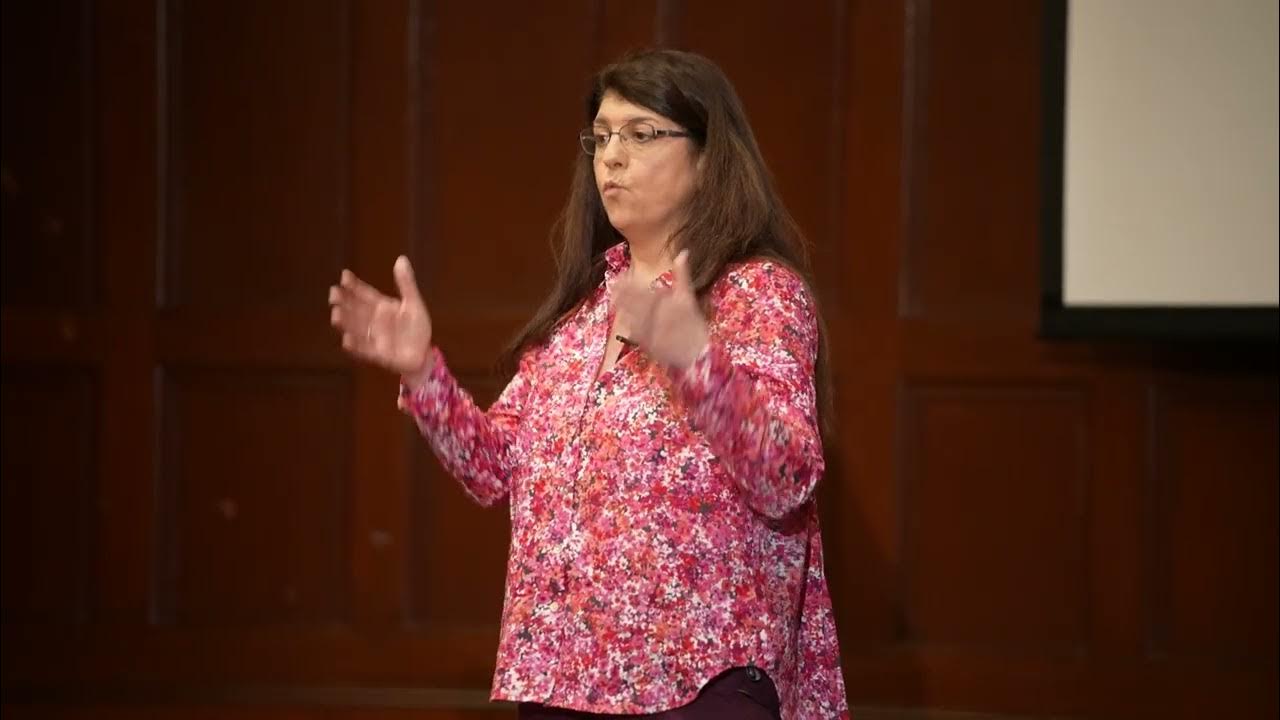Don’t try to be mindful - Daron Larson
Summary
TLDRThe speaker humorously shares their skepticism of mindfulness, despite its proven benefits for stress, anxiety, and sleep. They recount their journey of practicing mindfulness daily for 13 years, noting its transformative impact on their life. The talk explores the narrative of life as a series of obstacles to overcome, suggesting mindfulness as a tool to change our relationship with discomfort. The speaker encourages integrating brief moments of mindfulness into daily activities, comparing it to physical fitness, and emphasizes the value of acknowledging and embracing the present moment, even when it's unpleasant.
Takeaways
- 🧠 Mindfulness helps train attention through ordinary senses, aiding stress management, anxiety reduction, and better sleep.
- 😅 The speaker was initially skeptical about mindfulness, even feeling stressed during relaxation at a spa.
- 💪 Mindfulness, like physical fitness, requires consistent practice to transform one's life—focusing on the process rather than outcomes.
- 🏋️♀️ Just as taking the stairs builds physical strength, mindfulness helps build emotional resilience by embracing discomfort.
- 🔄 People often feel they are doing mindfulness wrong and give up, missing the chance to change their relationship with discomfort.
- 📖 We tend to treat life's challenges as obstacles to overcome, waiting for relief that never truly comes.
- ⏳ Mindfulness helps break the habit of constantly waiting for life's obstacles to pass and invites us to experience each moment.
- 👁️ An easy exercise for mindfulness is to pause and notice sensory details in any situation, like seeing, hearing, or feeling.
- 🏃♂️ Mindfulness isn't about erasing life's discomfort but about accepting that the present can be challenging—and that's okay.
- 🕰️ Mindfulness practices, even brief ones like noticing sensations for 10-15 minutes a day, can profoundly change our experience of life.
Q & A
What is mindfulness according to the speaker?
-Mindfulness is a way to train attention by focusing on ordinary senses and perceptions, helping people manage stress, reduce anxiety, and improve sleep.
Why was the speaker initially skeptical about mindfulness?
-The speaker was skeptical because they considered themselves naturally prone to stress and doubted the claims of mindfulness helping with stress and anxiety.
What experience made the speaker realize the importance of mindfulness?
-The speaker had a stressful experience during a vacation at a hot springs spa, where they couldn't relax despite being in a relaxing environment. This made them realize their need for mindfulness.
What comparison does the speaker make between physical fitness and mindfulness?
-The speaker compares physical fitness to mindfulness by explaining that just as physical exercise, like taking the stairs, strengthens the body, mindfulness strengthens attention and emotional resilience through repeated practice.
Why do people often give up on mindfulness practice?
-People give up on mindfulness because they believe they are doing it wrong when they feel discomfort or distraction during practice, without realizing that mindfulness is about accepting discomfort as part of the process.
What is the 'story problem' the speaker refers to in relation to mindfulness?
-The 'story problem' refers to how people see their lives as a series of challenges to overcome in order to reach a better, more comfortable state. They view obstacles as temporary annoyances rather than integral parts of life.
How does mindfulness help address the 'story problem'?
-Mindfulness helps by training people to focus on the present moment and accept the discomforts of life instead of constantly waiting for obstacles to pass. This changes their relationship with discomfort and helps them live more fully.
What simple mindfulness exercise does the speaker suggest?
-The speaker suggests a simple exercise: pause and notice a sensory detail of the current experience, such as sight, sound, or body sensation. This can be done anytime and helps disrupt the habitual narrative of life.
How does the speaker relate mindfulness to everyday activities?
-The speaker explains that mindfulness can be practiced during ordinary activities like showering, drinking coffee, or waiting in line by paying attention to sensory details, even if they are unpleasant.
What is the benefit of formal mindfulness practice according to the speaker?
-Formal mindfulness practice, such as focusing on breathing for 10-15 minutes, serves as a way to build the habit of attention that can then be applied throughout the day. It's like going to the gym to support long-term attentiveness.
Outlines

Dieser Bereich ist nur für Premium-Benutzer verfügbar. Bitte führen Sie ein Upgrade durch, um auf diesen Abschnitt zuzugreifen.
Upgrade durchführenMindmap

Dieser Bereich ist nur für Premium-Benutzer verfügbar. Bitte führen Sie ein Upgrade durch, um auf diesen Abschnitt zuzugreifen.
Upgrade durchführenKeywords

Dieser Bereich ist nur für Premium-Benutzer verfügbar. Bitte führen Sie ein Upgrade durch, um auf diesen Abschnitt zuzugreifen.
Upgrade durchführenHighlights

Dieser Bereich ist nur für Premium-Benutzer verfügbar. Bitte führen Sie ein Upgrade durch, um auf diesen Abschnitt zuzugreifen.
Upgrade durchführenTranscripts

Dieser Bereich ist nur für Premium-Benutzer verfügbar. Bitte führen Sie ein Upgrade durch, um auf diesen Abschnitt zuzugreifen.
Upgrade durchführenWeitere ähnliche Videos ansehen

Mindfulness, What is it really? | Marie Ficociello | TEDxMcphs

Tips Para Mejorar tu Sueño Basados en Evidencia

Why 5g of Creatine Isn't Enough (and how 25g negates sleep loss)

How White, Pink, and Brown Noise Can Help You Sleep & Focus

ADOLESCENTES NÃO podem FUMAR MACONHA! SAIBA POR QUÊ - PAULO JUBILUT e ANDREI MAYER

Psicólogas: Essa rotina é nociva ao TDAH
5.0 / 5 (0 votes)
